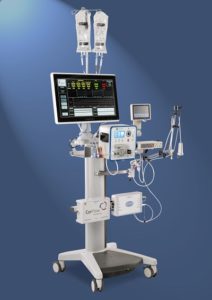
CorFlow Therapeutics has announced that the US Food & Drug Administration (FDA) has approved the company’s technology for investigational device exemption (IDE), allowing a pivotal clinical trial to begin at US hospitals.
CorFlow will prepare clinical trial sites to receive CorFlow systems, undergo training and begin enrolling patients being treated for heart attacks.
The IDE pivotal trial—MOCA-II—is intended to prospectively validate the diagnostic accuracy of the proprietary CorFlow CoFl system in determining the presence or absence of microvsacular obstruction (MVO) during a primary percutaneous coronary intervention (PCI) procedure.
The primary endpoint compares the CoFI diagnostic reading to a reference standard of diagnosis by a cardiac magnetic resonance imaging (MRI) scan. The trial is approved to enrol over 200 ST-elevation myocardial infarction (STEMI) patients at research institutions in both the USA and Europe.
The CorFlow technology is designed to both diagnose MVO, plus serve as a localised drug delivery system for diagnostic and therapeutic agents, which is being researched independently.
Paul Mead, chief executive officer of CorFlow, said: “The long history of interventional cardiology and heart attack care breakthroughs—going back over 100 years—is one of the great success stories of medical care progress, but the pioneers and luminaries of the field all agree that the work is unfinished. The majority of acute STEMI survivors have MVO, and current outcomes for these patients are shockingly poor. We aim to bring this issue to light and show you can do something about it. This milestone brings us all one step closer to delivering on the promise to improving care for these people where we know we can do better.”
MOCA-II is being led by Timothy Henry at The Christ Hospital (Cincinnati, USA) and Marco Valgimigli at (Cardiocentro Ticino Institute, Lugano, Switzerland).
“As an interventional cardiologist involved for decades in managing and researching STEMI patients, I am excited to get going on this pivotal trial with technology that could make such a significant impact to the outcome of our patients,” Henry said. “I believe strongly that knowing with high confidence who has MVO at the point of care during a primary PCI procedure can make an immediate difference in how we manage our patients.”
“Having played a significant part in MOCA-I first-in-human trial, I am thrilled to see the second-generation technology now available for the pivotal trial and am looking forward to contributing further to the scientific understanding of MVO in real time,” added Valgimigli. “While the medical community has diverse opinions on how to treat these patients, there is no question that proper diagnosis is the first step we need. I am optimistic that getting the CorFlow technology approved for everyday use by our peer interventional cardiologists can help move the field forward.”










